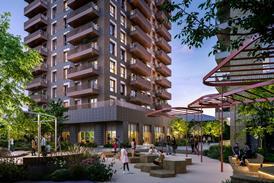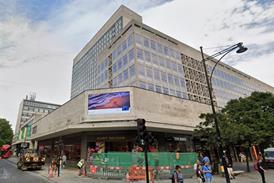Cost of remaining on register will jump to £149 next year
The Arb has announced what is thought to be the biggest single hike in the retention fee in its history.
The cost of remaining on the register next year will rise £30 to £149.
It comes on top of this year’s inflation-busting 8% rise, up from £111 in 2020.
Arb attributed that rise, the first in two years, to the extra workload caused by Brexit and regulation changes.
Today chief executive Hugh Simpson said the 25% increase was needed to fund a “bold and ambitious” approach to regulation that would deliver “significant improvements” in education and training, CPD and in how architects access Arb’s services.
The regulator also published a five-year strategy today outlining plans to beef up its CPD provision following new powers in the Building Safety Bill, and detailing its intention – announced earlier this month – to radically overhaul the three-part education system and allow new routes to qualification that would improve diversity in the profession.
Its plans also include moving to a “self-service” system where architects can update their own details on the register, saving many hours of staff’s time in the future.
The body also pledged to improve its engagement with architects to ensure its works was “influenced by meaningful involvement of the profession and other key stakeholders”.
Simpson said: “Arb’s new corporate strategy commits us to an ambitious programme of work over the next five years. We will deliver improvements in all our core services including registration and applications, we will overhaul our prescribed examination to make it more proportionate and reduce unnecessary barriers to entry for international architects, and we will review our code of conduct and practice.”
He said £149 was low compared to the fees charged by other professional regulators in the UK.
“Arb recognises the impact this will have, particularly for newly qualified architects, and the board has therefore agreed to freeze the £35 application fee which is significantly below the processing costs,” he added.
>> Also read: Arb unveils ‘biggest shake-up of profession in 50 years’
Arb’s chair, Alan Kershaw, said it was important that the body played its part in supporting a new culture of safety across the whole of the built environment.
“The new CPD scheme we’re designing will be focused on encouraging architects to reflect on their development needs and address them,” he said. “Our strategy sets out how we will do this in an effective and proportionate way, without placing unnecessary burdens on the profession.
“The scale of the modernisation programme we’ve already launched for the initial education and training of architects reflects our ambition to make Arb a thoroughly effective regulator, responding to the needs of the public and the profession.”
Postscript
The Arb has announced the biggest single hike in the retention fee in its history.
The cost of remaining on the register next year will rise £30 to £149.
It follows this year’s inflation-busting 8% rise, up from £111 in 2020.
Arb attributed that rise, the first in two years, to the extra workload caused by Brexit and regulation changes.
Today chief executive Hugh Simpson said the 25% increase was needed to fund a “bold and ambitious” approach to regulation that would deliver “significant improvements” in education and training, CPD and in how architects access Arb’s services.
The regulator also published a five-year strategy today outlining plans to beef up its CPD provision following new powers in the Building Safety Bill, and detailing its intention – announced earlier this month – to radically overhaul the three-part education system and allow new routes to qualification that would improve diversity in the profession.
Its plans also include moving to a “self-service” system where architects can update their own details on the register, saving many hours of staff’s time in the future.
The body also pledged to improve its engagement with architects to ensure its works was “influenced by meaningful involvement of the profession and other key stakeholders”.
Simpson said: “Arb’s new corporate strategy commits us to an ambitious programme of work over the next five years. We will deliver improvements in all our core services including registration and applications, we will overhaul our prescribed examination to make it more proportionate and reduce unnecessary barriers to entry for international architects, and we will review our code of conduct and practice.”
He said £149 was low compared to the fees charged by other professional regulators in the UK.
“Arb recognises the impact this will have, particularly for newly qualified architects, and the board has therefore agreed to freeze the £35 application fee which is significantly below the processing costs,” he added.
Arb’s chair, Alan Kershaw, said it was important that the body played its part in supporting a new culture of safety across the whole of the built environment.
“The new CPD scheme we’re designing will be focused on encouraging architects to reflect on their development needs and address them,” he said. “Our strategy sets out how we will do this in an effective and proportionate way, without placing unnecessary burdens on the profession.
“The scale of the modernisation programme we’ve already launched for the initial education and training of architects reflects our ambition to make Arb a thoroughly effective regulator, responding to the needs of the public and the profession.”
















2 Readers' comments